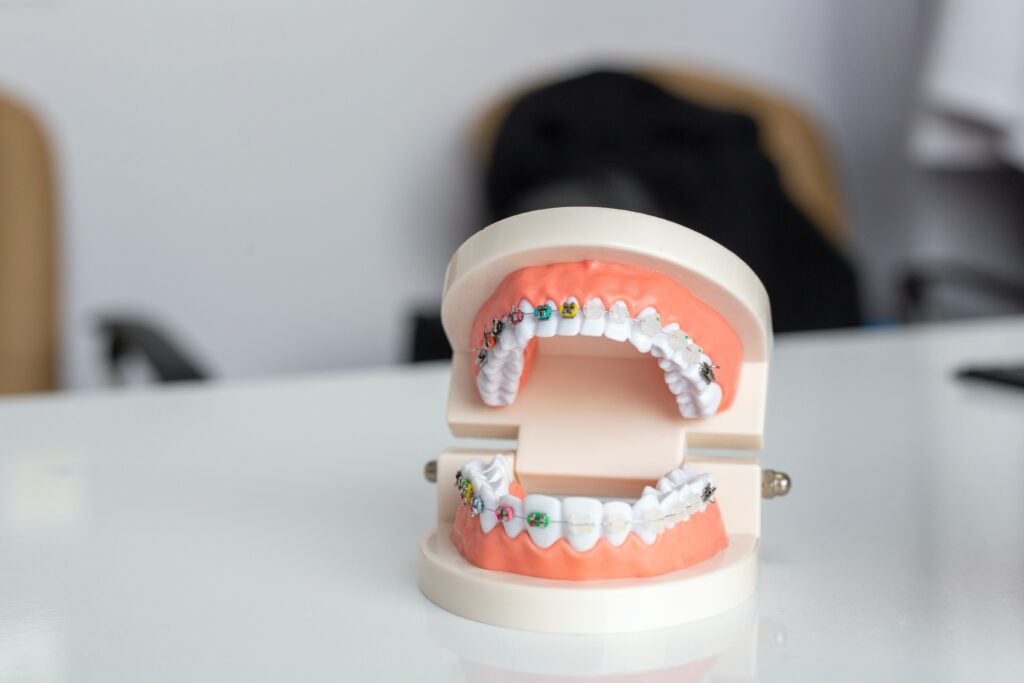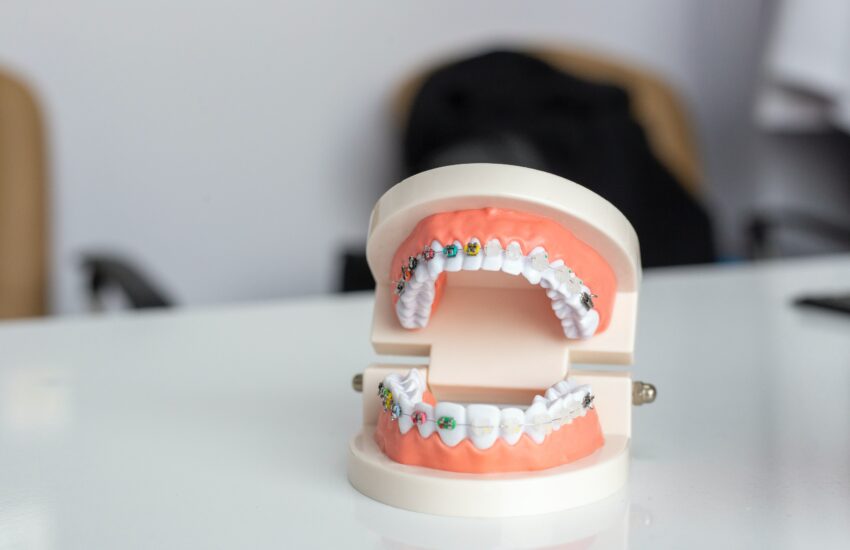Mohit Tandon Chicago says that Tooth sensitivity, or dentin hypersensitivity, can be a common and uncomfortable dental issue. It occurs when the enamel protecting your teeth becomes thin or damaged, exposing the underlying dentin and nerve endings. Sensitive teeth can be triggered by hot or cold foods and beverages, sweet or acidic foods, and even cold air. Fortunately, there are various strategies and dental care tips to help manage and alleviate tooth sensitivity. In this comprehensive guide, we will explore the causes of sensitive teeth and provide practical advice on how to care for and protect your sensitive teeth. Follow these Dental Care Tips for Sensitive Teeth :
Causes of Tooth Sensitivity:
Mohit Tandon Chicago says that Before delving into dental care tips for sensitive teeth, it’s essential to understand the underlying causes of this issue:
- Enamel Erosion: Enamel is the hard outer layer that protects your teeth. When it becomes eroded due to aggressive brushing, acidic foods, or tooth grinding (bruxism), it can expose the dentin beneath, leading to sensitivity.
- Gum Recession: When gums recede, the roots of your teeth may become exposed. Unlike enamel, dentin is porous and contains tiny tubules that lead to the nerve center of your tooth. This exposure can cause sensitivity to hot, cold, and sweet stimuli.
- Cavities and Tooth Decay: Cavities can create openings in your teeth that allow hot, cold, and acidic substances to reach the nerves. – Mohit Tandon Burr Ridge
- Cracked Teeth: Cracks or fractures in teeth can allow temperature and pressure changes to affect the nerve, causing discomfort.
- Tooth Grinding (Bruxism): Grinding your teeth, often unconsciously during sleep, can wear down the enamel and cause tooth sensitivity.
- Acidic Foods and Beverages: Frequent consumption of acidic foods and drinks, such as citrus fruits, soda, and certain vinegars, can erode enamel and cause sensitivity.

Dental Care Tips for Sensitive Teeth:
- Firstly, Choose the Right Toothpaste:
- Opt for a desensitizing toothpaste that contains potassium nitrate or strontium chloride. These ingredients help block the transmission of pain signals from the tooth’s surface to the nerve.
- Use the desensitizing toothpaste regularly, brushing your teeth gently. It may take several weeks for the toothpaste to take full effect.
- Secondly, Use a Soft-Bristled Toothbrush:
- Avoid hard-bristled toothbrushes that can further damage your enamel or gums.
- Choose a toothbrush with soft bristles and use gentle, circular motions to clean your teeth.
- Thirdly, Practice Proper Brushing Technique:
- Brush your teeth for at least two minutes, making sure to clean all surfaces of each tooth.
- Be gentle while brushing to avoid further enamel erosion or gum irritation.
- Brushing too vigorously can exacerbate sensitivity. – Mohit Tandon Burr Ridge
- Floss Regularly:
- Flossing is essential for maintaining good oral health, but do so gently.
- Floss carefully between your teeth without putting excessive pressure on the sensitive areas.
- Rinse with Fluoride Mouthwash:
- After brushing and flossing, rinse with a fluoride mouthwash to strengthen your tooth enamel.
- Fluoride helps protect your teeth from acid attacks and can reduce sensitivity.
- Avoid Acidic Foods and Beverages:
- Limit your consumption of acidic foods and drinks, as they can erode enamel.
- If you do consume acidic substances, rinse your mouth with water afterward to help neutralize the acid.
- Consider a Soft Bite Guard:
- If you grind your teeth (bruxism), consult your dentist about a soft bite guard to wear at night.
- This will help protect your teeth from further damage. – Mohit Tandon Burr Ridge
- Maintain Good Oral Hygiene:
- Regular dental check-ups and cleanings are essential for keeping your teeth and gums healthy.
- Your dentist can monitor and address sensitivity issues, as well as provide professional desensitizing treatments.
- Try At-Home Desensitizing Gels:
- Over-the-counter desensitizing gels can provide temporary relief. Apply the gel as directed on the packaging.
- Note that the relief may be short-term, and you should consult your dentist for long-term solutions.
- Use a Toothpaste for Sensitive Teeth:
- Specialized toothpaste for sensitive teeth is available over the counter. It can help reduce sensitivity over time.
- Be consistent in using this toothpaste as part of your daily dental care routine.
- Apply Fluoride Varnish:
- Your dentist can apply a fluoride varnish to your sensitive teeth during a dental visit.
- This helps strengthen the enamel and reduce sensitivity. – Mohit Tandon Burr Ridge
- Dental Bonding:
- Dental bonding is a procedure where your dentist applies a tooth-colored resin to exposed dentin or a fractured tooth. – Mohit Tandon Burr Ridge
- This can effectively cover the sensitive areas and provide relief. – Mohit Tandon Burr Ridge
- Gum Grafting:
- In cases of severe gum recession, your dentist may recommend gum grafting to protect the exposed tooth roots.
- This surgical procedure can significantly reduce sensitivity. – Mohit Tandon Burr Ridge
- Tooth Sealants:
- Dental sealants are often used to prevent cavities but can also help seal exposed root surfaces and reduce sensitivity.
- Avoid Whitening Products:
- Refrain from using teeth-whitening products, as they can exacerbate sensitivity.
- Consult your dentist for safe whitening options if desired. – Mohit Tandon Burr Ridge
- Manage Stress:
- Especially, Stress can lead to teeth grinding, which can worsen sensitivity.
- Practice stress-reduction techniques, such as meditation or yoga, to minimize teeth grinding.
- Customized Oral Care:
- Mohit Tandon Chicago says that Work closely with your dentist to develop a customized oral care plan that addresses your specific sensitivity issues. – Mohit Tandon Burr Ridge
- Sensitivity Toothpaste with Novamin:
- Some sensitivity toothpaste brands contain Novamin, an ingredient that can help repair and remineralize tooth surfaces.
- Consult your dentist for recommendations.
- Curb Harmful Habits:
- Especially, Avoid using your teeth for purposes other than chewing, such as biting nails or opening packages.
- These habits can cause tooth damage and increase sensitivity.
- Stay Hydrated:
- Drinking water helps maintain saliva flow, which is essential for oral health.
- Dry mouth can exacerbate sensitivity, so make an effort to stay hydrated.
Conclusion:
Lastly, Tooth sensitivity can be managed and alleviated with the right dental care and lifestyle adjustments. By following these dental care tips for sensitive teeth, you can protect your teeth from further damage and reduce discomfort. Remember that consulting with your dentist is crucial, as they can provide personalized recommendations and treatments based on the severity of your sensitivity. Maintaining a healthy oral care routine and making smart choices can help you enjoy a pain-free and confident smile.
